How fishing led the Rolling Stones to perform in the Ozarks



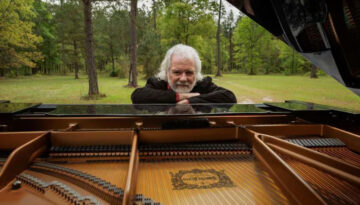
During a recent week off from the Rolling Stones’ current U.S. tour, the band’s keyboardist and musical director wasn’t lounging around at a swanky resort or jetting off to a private island retreat. Those hedonistic pursuits are for pampered rock stars. For Twiggs County-based multi-instrumentalist Chuck Leavell, the break was much better spent resting in his own studio in the Middle Georgia town of Dry Branch.
“This is my resort. Why would I want to go anywhere else?” said the affable musician during a recent phone chat. “I get to check on our projects out here in the woods, because we’ll be harvesting this season. It’s just nice to see things around here and be a family guy for a minute.”
Musician Chuck Leavell has played alongside some of the most famous rock bands. He told Monica Pearson he played concert tuba for two years in school.
Full Article/URL: https://www.ajc.com/things-to-do/chuck-leavell-leaves-his-south-georgia-farm-to-tour-with-the-stones/V65LC745FNGWVPLTW5KEF6OFGY/
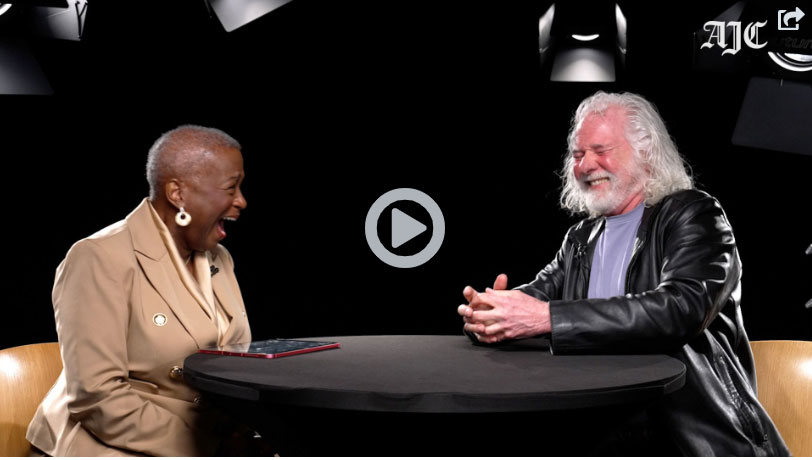

Tens of thousands in a sold-out stadium are visually stapled to Mick Jagger belting “Start Me Up.” But the band’s eyes will frequently dart to the snow-haired presence stationed stage right.
Chuck Leavell is perched behind his bank of keyboards, electric piano and organ, his hand occasionally airborne, his glances with Jagger and Keith Richards subtle.
But those aren’t just friendly nods. They’re meaningful cues, just as a conductor directs an orchestra.
The maestro of the Rolling Stones, Leavell has served as their keyboardist and musical director since the early ‘80s, coming in as a veteran of the Allman Brothers Band and his own jam-rock outfit Sea Level.
As the generator of gestures onstage, Leavell is concentrating on more than the ominous backdrop of “Sympathy for the Devil” and the gospelized swoops of “You Can’t Always Get What You Want.”
He’s the steady hand in command.
“They count on me if anyone gets lost to be the person to make everyone feel comfortable,” Leavell says in his Southern lilt and with a crinkled smile the night before the April kickoff of the Stones’ Hackney Diamonds tour.
In his Houston hotel room, Leavell flips through weighty binders, giving USA TODAY an exclusive look at a trove of Stones history.
Pages of white loose-leaf, yellow legal paper and Rolling Stones stationery are meticulously slotted in alphabetical order, many of them bearing the names of song titles etched in rock history – “Miss You,” “Ruby Tuesday,” “Beast of Burden” “Gimme Shelter,” “(I Can’t Get No) Satisfaction” – with notations alongside the names.

Chord changes, song keys and tempos are often scrawled in the margins, necessary reminders for a catalog spanning six decades and for a band that might need that head nod or hand signal as a prompt during one of their massive stadium shows.
Rolling Stones guitar hero Richards readily shares his appreciation of Leavell’s archives, telling USA TODAY in a statement that “without being able to fall back on these priceless records ‒ of chords, keys, arrangements, and other bits of alchemy – we would be truly lost,” while also bestowing the Keith-ism, “Gold rings on you, Chuck.”
Since that tour launch April 28 – also Leavell’s 72nd birthday – the Stones have played the New Orleans Jazz & Heritage Festival, with Jagger sharing “Time is On My Side” with its original singer, Irma Thomas (“To have the privilege of being with just the two of them in the dressing room (to rehearse) and then bring it to the band was so exciting,” Leavell says a few weeks after that performance); pulled out infrequently played fan favorites “Monkey Man,” “Shattered,” “Let’s Spend the Night Together” “Doo Doo Doo Doo Doo (Heartbreaker)” and “She’s a Rainbow” at various shows; and, for Leavell, owned the spotlight at each date with fiery solo work during “Honky Tonk Women.”

Each show, with the core trio of Jagger, Richards and Ronnie Wood and additional players Steve Jordan, Darryl Jones, Matt Clifford, Karl Denson, Tim Ries, Chanel Haynes and Bernard Fowler, Leavell has rolled through set lists of classics usually totaling 20 songs.
There are only a handful of concerts until a July 21 wrap at a nature preserve in Missouri, and Leavell says that already the tour “far exceeded all of our expectations. … To me, it feels very much like a family working together.”
That’s a heady statement from someone who has been part of the Stones’ inner circle for decades, having played 890 concerts with them as of July 5.
A devout Rolling Stones follower and photographer in the Netherlands, Hendrik Mulder, keeps scrupulous stats about Leavell’s tenure with the band, and by his account, Leavell has performed in 247 cities (London the top location) and played 191 different songs (“Jumpin’ Jack Flash” and “Start Me Up” the most, at 881 and 879 times, respectively).
Leavell, at the suggestion of a band tech, started saving almost every song list from rehearsals, set list from shows, notes about cover songs the Stones might attempt and personal scribbles to nudge his own memory since the band’s 1989 Steel Wheels tour.
Those details are regularly revisited.

“Let’s say there is a song we haven’t done for a while, and I’ve refreshed my memory through the notes and go through soundcheck and I’m looking around at everyone to make sure they remember the parts,” Leavell says. “But when you think about how Mick is engaging the public (on stage), that’s his gig, and sometimes it’s not unusual for him to have a question like, ‘Do I come in here?’ So he can glance at me and with a nod or hand signal (and) I can help him out.”
Leavell has also shared stages and studios with Eric Clapton, David Gilmour, John Mayer and The Black Crowes and is a lauded environmentalist with the notable 2020 documentary “The Tree Man.” He believes that his innately calm demeanor, expressed even more prominently when he returns home to his tree farm in Macon, Georgia, benefits his responsibilities as a behind-the-scenes guardian for the mightiest rock band still performing.
“Back in the day with Sea Level or the Allmans, if something would go wrong, I’d tend to get upset. And when I joined the Stones and those moments would occur, it was a lesson learned to just let it go, and don’t dwell on it. Most of the time it all ends up with a laugh.”
Cadence is a crucial component of the Rolling Stones’ live performances, and many of Leavell’s song sheets include numbers that can look random to an untrained eye – 135 for “Jumpin’ Jack Flash,” 113 for “Miss You,” 143 for “Paint It, Black” – but those beats per minute are truly the heartbeat of each song.
“When you’re on stage, it’s easy to get overly excited, and you don’t want to count a song off and realize, uh-oh, it’s too fast. Or you’re too cautious and counted off too slow,” Leavell says. “We are adamantly checking the tempos in soundcheck, and the variations can be miniscule. On stage, I do a digital readout of the BPMs and take a moment to absorb that tempo. Mick is always concerned about getting the right tempo.”
This is the third tour in which the Rolling Stones are joined by Jordan, who has occupied the drum stool since the death of Charlie Watts in 2021. While reverence for the beloved sticksman is firm – “Charlie was Charlie Watts, man. There was only one,” Leavell laments – there is also much appreciation for Jordan and his different style.
“Steve is a harder hitter, a little more energetic,” Leavell says. “And we love that because it helps get us the energy that we all need. But he also does a great job respecting Charlie’s parts.”

With the Hackney Diamonds tour trotting to a close, there of course remains the eternal question of when it will literally be the end of the road for the seemingly immortal rock band, all of whose core members are in their late 70s (Wood) and 80s (Jagger and Richards).
Given the impressive level of showmanship and reliable musicianship on this run, there is always the possibility that the band will continue to romp across stages worldwide.
Though Leavell is uncertain about more live shows, he is grateful for the present.
“Who knows what the future may hold?” he says, “But this tour has been historic and so much fun.”
It also has given him many more pages to add to his binders.

As the legendary Stones eye two big shows in Chicago — the closest they’ll come to Michigan — their keyboardist chats with Local Spins about the tour, which will also feature Albion-bred The War & Treaty.
Even after more than four decades as The Rolling Stones’ keyboardist and music director, Rock and Roll Hall of Famer Chuck Leavell still gets his thrills touring with the iconic rock band – never taking its legacy for granted.
And midway into their current U.S. tour, Leavell and his famous bandmates have hit their stride with a Chicago stop at Soldier Field looming on Thursday (June 27) and Sunday (June 30), the closest they’ll come to Michigan.
“We all felt confident from the start. We had done the homework in the rehearsal phase and got a good many of the new songs down fairly quickly,” Leavell said in a recent interview with Local Spins while on tour.
“We played probably about 60 or more songs in rehearsals and started sorting out what we could do for set lists. … The reviews were very positive. Jazz Fest (in New Orleans) was very special. We had scheduled it twice before and circumstances caused us not to be able to fulfill playing it, so I guess the third time is a charm.”

Busy On and Off Tour: Leavell (Courtesy Photo)
Charming audiences is nothing new for the Stones or Leavell. Considering his lengthy tenure in the band, Leavell’s comfort level with Mick Jagger, Keith Richards, Ronnie Wood and crew – and their exhaustive repertoire – is unsurprising.
“Someone recently told me that they calculated how many shows I’ve done with the band since I came in and the figure is about 870,” Leavell noted. “So if I haven’t gotten things down by now …”
Getting things down for the Stones is only a small part of Leavell’s astounding accomplishments and impressive resume.
Not only was he a key member of The Allman Brothers during their heyday, but the Alabama native fronted his own band, Sea Level, and has since toured/recorded with the likes of Eric Clapton, David Gilmour, Gov’t Mule and John Mayer.
Perhaps even more important, he’s established himself as a leading conservationist who co-founded The Mother Nature Network, an environmental news website.
As tree farmer outside Macon, Georgia – on land inherited by his wife, Rose Lane Leavell – Leavell created the award-winning Charlane Plantation and often speaks on conservation issues. He was the subject of an engaging and in-depth 2020 documentary, “Chuck Leavell: The Tree Man.”
He also hosts a PBS television program, “America’s Forests,” with two new episodes on the way.
“That will make 13 episodes for us, and now we are hoping to go to a one-hour program from the current 30 minutes. We’ll see how that pans out,” he said, noting he’ll be busy after the Stones tour concludes.
“My documentary has done well, and both of the aforementioned are available on Amazon Prime and some other streaming services. I have probably a half- dozen personal appearances booked before the end of the year, and of course, I’ll be spending a good bit of my time on my tractors and in our woods at Charlane, our tree farm in Georgia.”
FROM ‘ANGRY’ & ‘MESS IT UP’ TO ‘GET OFF MY CLOUD’ & ‘SHATTERED’
But for now, Leavell’s concentrating on his significant role with the Stones, including managing each show’s set lists — lineups that have included new songs from the band’s latest studio album, “Hackney Diamonds.”
“In addition to ‘Angry,’ we’ve done ‘Whole Wide World,’ ‘Mess It Up’ and ‘Sweet Sounds of Heaven.’ Keith has also done ‘Tell Me Straight.’ Don’t be surprised if others surface,” he said, adding that the band also has delved into songs they haven’t performed live in years.

Embracing Old and New Tracks: Leavell (Courtesy Photo)
“We’ve done ‘Out of Time’ – that’s a deep track for sure. ‘Get Off My Cloud’ some, ‘Shattered,’ ‘She’s So Cold’ and others.”
The goal for the band’s first U.S. tour since 2021? “We just do our best to balance the set offering with some new ones, some classics and some deep tracks.”
Tickets for Thursday’s Chicago show — $99.50-$2,500 — are available online via AXS.com. Sunday tickets available online here.
Leavell also said he’s happy that Albion-bred The War and Treaty will open for the Stones in Los Angeles in July. He noted that he had asked Michael and Tanya Trotter to sit in with him at a solo gig in North Carolina several months ago, but they had to decline because Tanya’s voice was stressed.
Of course, members of The War and Treaty are substantially more excited about opening for Leavell and the Stones come July 10 at L.A.’s mammoth SoFi Stadium.
“To me, opening for the Stones is the pinnacle of rock ‘n’ roll,” said Michigan native and band music director Max Brown. “Michael, Tanya and I were playing a gig in L.A. near SoFi Stadium a few months ago and Tanya said out loud, ‘I hope we get to play SoFi some day,’ and 10 minutes later we got the call.
“It feels like the culmination of years of hard work and I couldn’t be prouder to be playing this music before I watch one of the best bands ever.”
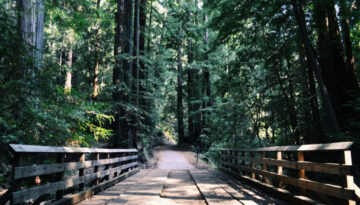
Chuck Leavell, a Birmingham-born musician, is best known for his role as the keyboardist in The Rolling Stones. What you may not know is that Leavell is also an environmentalist and host of America’s Forests on PBS—a documentary-style program about America’s most beautiful forests and how we can protect them.
Alabama-born music icon turned environmentalist
Born in Birmingham, Chuck Leavell has had a colorful career as a keyboardist for Dr. John, The Allman Brothers Band and eventually The Rolling Stones beginning in 1985. The Alabama Music Hall of Fame member and Birmingham Area Music Award winner has also worked with artists such as:
George Harrison
Eric Clapton
Blues Traveler
John Mayer
Miranda Lambert
Chuck Leavell hosts America’s Forests on PBS
In addition to his music career, Leavell is a tree farmer with a 2,500-acre tree farm and preserve in Macon, Georgia. As supporters of sustainable forestry and conservation, Chuck and his wife Rose Lane have two Georgia Tree Farmers of the Year awards under their belt.
As host of America’s Forests, Leavell focuses on forests across the country and highlights how sustainability creates a better world and community. From the Northwoods of Wisconsin to the Arkansas Delta, America’s Forests demonstrates the importance of keeping our forests beautiful and clean.
Watch the first episode of America’s Forests with Chuck Leavell on PBS.
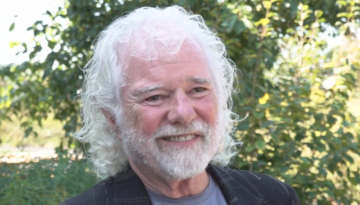
KODAK, Tenn. — We all — here in East Tennessee and across the planet — owe it to our children and our neighbors to be good stewards of the land, famed musician and conservationist Chuck Leavell told hundreds gathered Friday at the annual Legacy Parks Foundation luncheon and fundraiser.
We have a chance to create art through our stewardship, the longtime Georgian added. But we must be respectful of what we do and we must work together as partners.
“The canvas to perform this art is our own backyards, it’s our own neighborhoods, our own communities and cities, our respective states, this incredible country, Planet Earth,” said Leavell, featured speaker at the Seven Islands State Birding Park in Kodak.
“This is the canvas that we have to perform that art. So I would say, be careful how we mix the colors on the palette, be careful of the brushstrokes. Because I know that all of us who love doing this want to make sure that whatever we paint is a masterpiece.”
The parks group announced at the lunch that philanthropist and businessman Pete Claussen would be donating 90 acres located on the opposite side of the French Broad River to serve as a park addition. He and his late wife Linda have previously donated land for what is now the park.
Legacy Parks executive director Carol Evans also said Friday by working together state agencies and local governments also would be creating a 20-mile “water trail” that would stretch from the park to downtown Knoxville.
Two accessible docks will be installed — at Seven Islands and Asbury Landing — to create access to 5- t 7-mile intervals along the way for “an adaptive experience” that any and all could enjoy.
Hopefully it’ll be the first of many water trails in the state, Evans said.
Legacy Parks is a nonprofit dedicated to preserving and promoting East Tennessee’s bounty of outdoor spaces.
While known internationally for his more than 50 years in rock ‘n’ roll, including stints with the Allman Brothers and the Rolling Stones, among others, Leavell is also a respected conservationist. He and his wife of 50 years, Rose Lane, live on and look after thousands of acres on a plantation near Macon, Ga.
He’s previously been named a National Tree Farmer of the Year and he has hosted a TV series about America’s forests on PBS.
He’s also the subject of a recent documentary, “Chuck Leavell: The Tree Man”. Rolling Stones originals Mick Jagger, Keith Richards and the late Charlie Watts are among the many artists who pay tribute to Leavell in the film.
Leavell said he feels a spiritual connection between trees and the land and his work as a musician because the piano in fact comes from wood.
He told WBIR that Seven Islands is a great example of stewardship in action. But we must do more to look after our natural resources because the nation’s population is only going to go up, he said.
Organizations like Legacy Parks play a vital role in preserving that land, he said. Individuals can also make a difference by doing things as simple as planting a tree.
“I have a deep passion and love and reverence for the outdoors, for the natural world, for nature in general,” he said. “There’s a wonderful quote that I like to use from Ralph Waldo Emerson — in the woods we return to reason and faith.
“We all have a lot of busy-ness in our lives, no matter what it is that you’re doing, and there’s a lot of electrical vibes going on with our work and whatnot. It’s so important to balance that, to come to a place like this, walk in nature, plant a tree and remember how important this is to all of us.”
Leavell also talked a little music with 10News.
The Stones, for which he’s been the keyboardist for 40-some years, have a new album coming out, “Hackney Diamonds”. It’s their first album of original material since 2005.
The band, including Leavell, tour fairly regularly, most recently in the U.S. in 2021.
Will his “British brethren,” as he calls them, get back on the road now that the album is out?
“I know we’re all excited about (the new album),” he said. “We don’t have any confirmation of what the immediate future might hold. I think the band wants to work, and we will keep our fingers crossed that that will come about.”
This summer, Leavell, REM’s Mike Mills and Macon native and violinist Robert McDuffie received an Emmy in the Southeast Region for their work on “A Night of Georgia Music,” a concert in Macon that featured songs referencing Georgia and including students from Mercer University. It was broadcast on public television in Georgia.
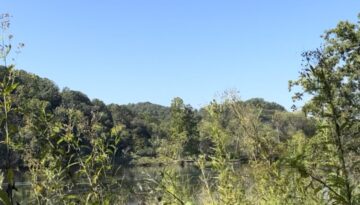
KNOXVILLE, Tenn. (WATE) — A new 20-mile river trail on the French Broad River is coming to Knoxville. The Legacy Parks Foundation announced the new trail along with several other projects during their annual legacy luncheon.
Rock legend Chuck Leavell, who is a respected leader in conservation, helped the foundation celebrate their efforts of conserving natural resources in Tennessee during the event. The Legacy Foundation has helped create public places and connect communities around East Tennessee.
The new project announced was a 20-mile river trail on the French Broad River from Seven Islands to Downtown Knoxville. Three accessible docks will be installed along the trail at Seven Islands, Cruze Landing and Asbury Landing. The goal is to create access at five to seven-mile intervals along the river.
“This project is really a partnership of TVA, TWRA, Legacy Park, State Parks, city and county. So there are a lot of people involved in this and it does take a little while. We’re all used to collaborating, so it’s a great announcement. Everybody sort of shares the value of getting people on the river. So it’s a great project,” said Evans.
“The Claussen’s extraordinary land donation and unwavering support for Seven Islands State Birding Park have transformed a vision into a reality, creating a place where nature and people thrive. Their generosity is monumental, and we are profoundly grateful for their enduring commitment to the park’s mission and its future,” said Deputy Commissioner Greer Tidwell of the Tennessee Department of Environment and Conservation.
Other Legacy Parks projects highlighted included the French Broad Veterans Memorial Park, which is set to finish by spring 2024, and the Angora Frog Farm in Powell, which will offer visually stimulating and imaginative play areas for young children.
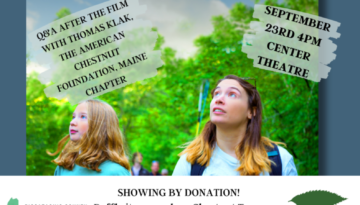
On Saturday, Sept. 23 at 4 p.m., the Piscataquis County Soil & Water Conservation District will be hosting the only screening in Maine of the documentary “Clear Day Thunder: Rescuing the American Chestnut” at the Center Theatre. The showing is by donation, with a Q&A following the film with Thomas Klak from The American Chestnut Foundation, Maine Chapter.
“Clear Day Thunder: Rescuing the American Chestnut” tells the story of passionate citizen scientists and researchers working to restore this ecologically and economically important species, during this pivotal moment. The tree that forged a connection with humankind has been embraced in turn by humans who, invigorated by hope, are working tirelessly to revive this magnificent tree — so that it can once again help shape the future. The movie features President Jimmy Carter, Dolly Parton, Chuck Leavell from the Allman Brothers and Rolling Stones, culinary historian and author Michael Twitty, best-selling author Barbara Kinsolver, “Father of Biodiversity” biologist and writer, E.O. Wilson, and Rex Mann — retired forester and chestnut evangelist. This documentary is underwritten by The American Chestnut Foundation and sponsored by the James G. K. McClure Educational and Development Fund and New Leaf Paper. The mission of The American Chestnut Foundation is to return the iconic American chestnut tree (Castanea dentata) to its native range.
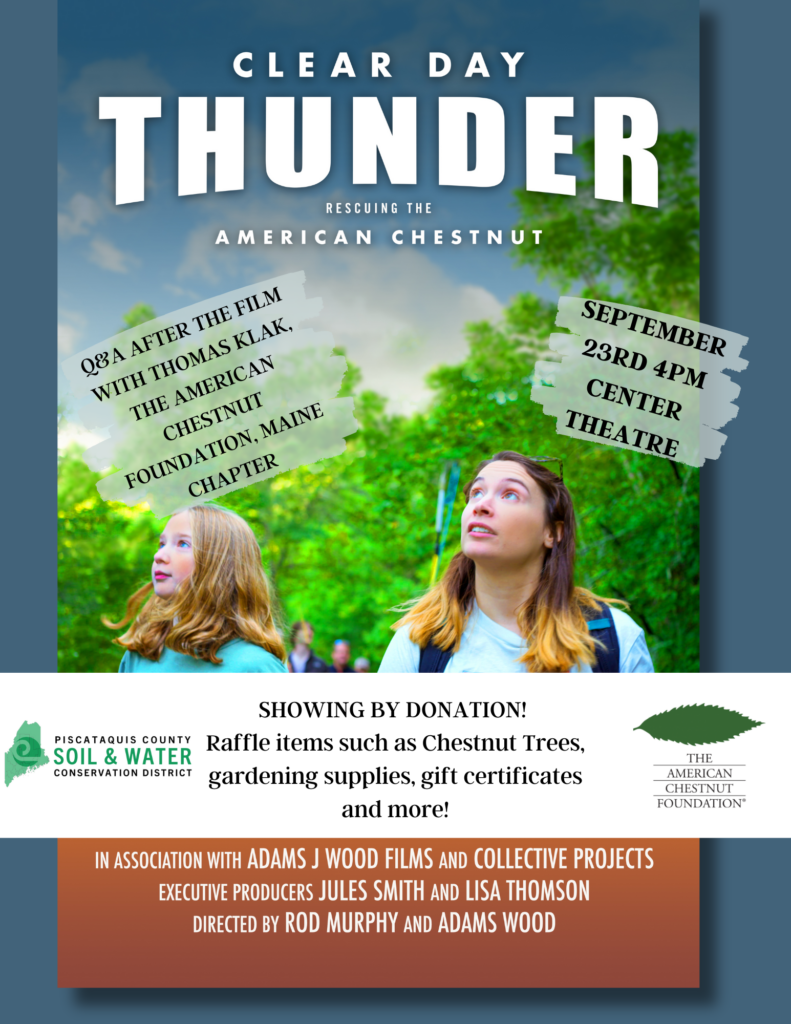
Prior to the screening, there will be exciting raffle items such as Chestnut trees, gardening and tree care supplies, books, gift certificates to local businesses and 50/50 raffle tickets along with refreshments including snacks and beverages at Center Theatres concession stand. All proceeds and support of the film will go toward Piscataquis County Soil & Water Conservation District’s conservation educational outreach programming and operational support which helps aid our American Chestnut germplasm plot located at the Law Farm Nature Trails in Dover-Foxcroft. Stick around after the screening to have a chance to talk directly with Klak where folks can have the opportunity to ask questions regarding the restoration efforts and current updates. PCSWCD looks forward to seeing you at this event and thanks Center Theatre, The American Chestnut Foundation and all the partners and businesses that contributed to this effort.
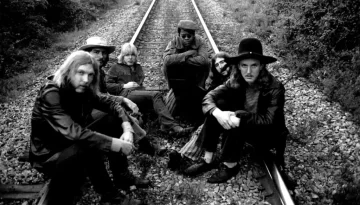
On Nov. 2, 1972, the Allman Brothers Band made their live debut with a new lineup. Duane Allman, the band’s transcendent guitarist and leader, had died a year earlier in a motorcycle accident. His place, as if anyone could fill it, was taken by 20-year-old wunderkind Chuck Leavell, one of rock’s greatest pianists. The group was locked in.
Playing as part of Don Kirshner’s “In Concert” TV show along with Blood, Sweat & Tears, Chuck Berry and Poco, the Allman Brothers premiered “Ramblin’ Man.” The song, a tasty slice of country rock fueled by Dickey Betts’ twangy guitar, would go on to become the band’s highest charting single at No. 2. With it and Gregg Allman’s “Wasted Words” already in the can for their next album, one of America’s greatest jam bands saw nothing but blue skies ahead.
Then tragedy struck — again. Just nine days after the taping, Berry Oakley, the adventurous bassist whose innovative playing helped the band’s music take flight, also died in a motorcycle crash.
Losing two key members in such close succession would be more than enough to destroy most bands. But as author Alan Paul convincingly argues, the Allman Brothers weren’t like most bands. They were stronger, better and more resilient, at least for a while. In his engaging new book, “Brothers and Sisters: The Allman Brothers Band and the Inside Story of the Album that Defined the ’70s,” Paul depicts the band barreling through substance abuse, death and despair to make their biggest selling record and become America’s most popular band — before it all finally comes crashing down.
Along the way, Paul takes several interesting detours. He shows how the Allmans inspired the Southern Rock movement, paving the way for the likes of Lynyrd Skynyrd and the Marshall Tucker Band. He also takes readers behind the scenes of July 1973’s Summer Jam at Watkins Glen, N.Y., the largest rock festival ever with 600,000 fans, which the Allman Brothers co-headlined with their friends the Grateful Dead.
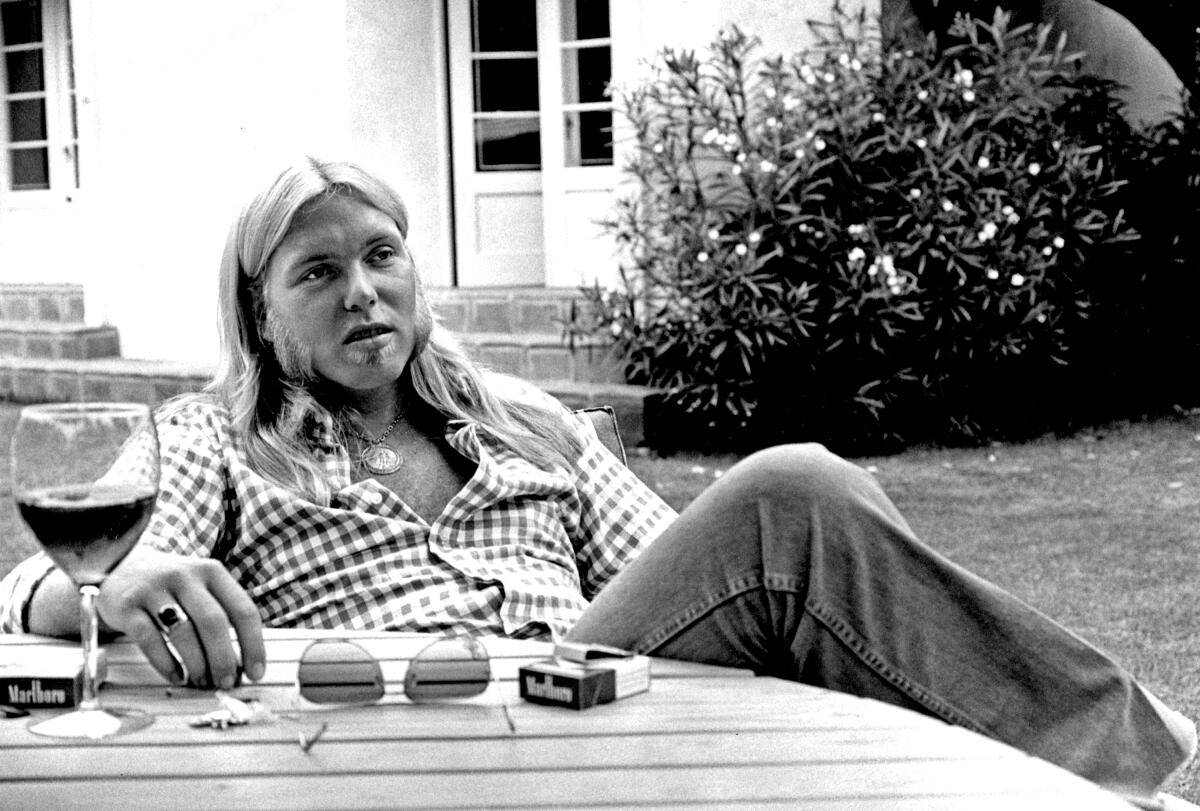
“The Allman Brothers Band elevated above their rock and roll peers to become an American institution … a group that birthed a genre, had immense impact on country music, helped elect an American president, and stood at the center of the nation’s culture,” writes Paul, also the author of the best-selling “One Way Out: The Inside History of the Allman Brothers Band.”
In Paul’s telling, the process of making “Brothers and Sisters” was anything but smooth. Gregg Allman was working on his first solo album, “Laid Back,” at the same time. Betts began to assume leadership of the band, creating tension between him and an increasingly drug-addled Allman. Integrating Leavell and new bassist Lamar Williams into the Brotherhood proved challenging.
Somehow, they managed to produce a multiplatinum album with a mellower and more accessible sound, including the upbeat instrumental “Jessica,” which later won a Grammy Award. The band’s timing couldn’t have been any better.
“The vibe on ‘Brothers and Sisters’ was unknowingly tapping into a national mood,” Paul writes. “The country sought tranquility, togetherness, and a simpler, more peaceful time after being torn apart in the ’60s by social upheaval.”
Fueled by the popularity of “Ramblin’ Man,” “Brothers and Sisters” would go on to sell 7 million copies. It landed the Allman Brothers on the cover of Rolling Stone. It made them superstars. Perhaps most interestingly, their success caught the attention of a peanut farmer from Plains, Ga., who dreamed of becoming president.
In January 1974, Georgia Gov. Jimmy Carter held a post-show party at the governor’s mansion for Bob Dylan and the Band. Because of his relationship with Allman Brothers manager Phil Walden, Carter also invited the group.
Gregg Allman showed up late, after everyone had left. Instead of being turned away, he found himself alone on a porch with Carter drinking J&B scotch and listening to records by bluesman Elmore James. Carter started reeling off lyrics to “Midnight Rider” and other songs Allman had written. The governor told the singer that he was running for president and might one day need some financial help.

Allman liked Carter but thought the Levi’s- and T-shirt-clad man seated next to him had no chance. But Carter, like the Allman Brothers, repeatedly defied the odds. On Nov. 25, 1975, the band played a benefit for the cash-strapped candidate at the Providence Civic Center in Rhode Island. The group not only raised money for Carter but, as Paul notes, also burnished his image with young voters.
“If it hadn’t been for Gregg Allman, I never would have been president,” Carter said.
But as the peanut farmer ascended, the Allmans went the other way. Drugs, infighting and exhaustion took their toll. Their once-magical improvisations became self-indulgent and meandering, especially live. The band called it quits in 1976. Then reunited in 1978. Then broke up in 1982. Then got back together in 1989. Put out three strong albums in the 1990s. Pushed Betts out of the band in 2000 and soldiered on until 2014. There’s a book in there somewhere.
For all its strengths, “Brothers and Sisters” drags at times, notably Paul’s description of Gregg Allman’s relationship with Cher, which seems better suited for the pages of the National Enquirer. The book also overstates the influence of the album itself. It’s easy to argue that 1972’s “Exile on Main Street” by the Rolling Stones, Stevie Wonder’s “Innervisions” (1973) and 1977’s “Never Mind the Bollocks, Here’s the Sex Pistols” all left a bigger musical and cultural imprint.
Still, these are minor quibbles. Few writers understand or appreciate the Allman Brothers as much as Paul. His book, which coincides with the 50th anniversary of its namesake album, colorfully narrates an oft-overlooked chapter in the band’s history with nuance, clarity and perspicacity. In addition to his own extensive reporting, Paul had access to hundreds of hours of interviews conducted in the mid-1980s by Kirk West, a longtime Allman Brothers insider, for a book West never got around to writing. That material gives Paul’s work a real richness and depth.
“Brothers and Sisters” is a very good read for anyone interested in the Allman Brothers, the sounds of the ’70s or simply great music. It rocks.
